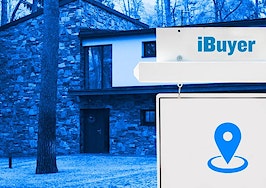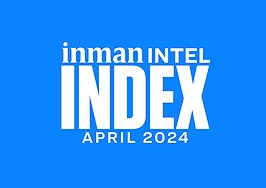When iBuying began, it focused on low hanging fruit.
Though Opendoor is based in California’s pricy Bay Area, for example, when it initially launched the company decided to start buying and selling homes in the Phoenix area. Around that same time, company co-founder Eric Wu reportedly said Opendoor was zeroing in on markets without a lot of liquidity or demand.
That was in 2014, and in the period since, Sunbelt cities — Atlanta, Houston, Dallas, etc. — have become ground zero for iBuying and adjacent real estate tech experiments.
But this year, something curious happened: iBuying and other novel real estate concepts moved in force to Los Angeles, a city that is sunny but otherwise more expensive, older and generally quite different from other iBuying hotspots. Los Angeles has pro baseball and basketball and football teams, after all, but real estate might more accurately be the city’s most competitive sport.
So what happened?
For starters, it’s worth reviewing just how big the rush into Los Angeles was this year. Things got started right off the bat, in early January, when Redfin announced that it had begun making cash offers on homes in Los Angeles via its RedfinNow iBuyer service. (RedfinNow technically launched in L.A. in late 2018, but the company didn’t publicly announce the news until January.)
Months later, in November, Opendoor announced that it too would begin buying homes for cash in the Los Angeles market. Significantly, the announcement included the revelation that Opendoor would buy homes in L.A. costing as much as $800,000, and which were built after 1950 — a significant divergence from standard practices in other cities where the firm tends to focus on newer and less expensive properties.
Then this week, Zillow expanded it’s iBuyer program, Zillow Offers, to Los Angeles County, as well as adjacent Orange County.
And just days after that, relative iBuying upstart FlyHomes also announced its L.A. launch.
It wasn’t just iBuying either. Also in December, Redfin Direct launched in multiple California markets. The program, which lets unrepresented buyers make offers on Redfin-listed homes, first launched in Boston in May, then expanded to several other markets over the ensuing months. But the California expansion represented the program’s biggest move to date, and the Los Angeles metro was far and away the largest market included in that move.
Statements that these companies released about their various program launches tended to focus on how they can help consumers, as well as how excited they were to be expanding.
Still though, it’s clear that Los Angeles represented a curious and challenging move for these companies.
Up until this year, iBuying had tended to focus on tract homes built in the latter 20th Century. Real estate scholar and iBuying expert Mike DelPrete also found earlier this year that Opendoor was buying homes with an average price of $240,000 in Phoenix — which is almost the same as the median home price there, according to Zillow.

Homes in Phoenix. Credit: Nearmap and Getty Images
The prices and ages of target iBuying homes vary somewhat from market to market, and from company to company, but up until this year the pattern had generally been similar to what was going on in Phoenix. Which makes sense because the promise of iBuying is that technology such as algorithms and automated valuation models (AVMs) can make the transaction more efficient.
Similar homes costing similar prices — or, the kinds that machines can easily understand — is consequently an obvious place to begin.
Los Angeles, however, is an entirely different beast. For one thing, the median home value there is $698,800, according to Zillow, which is way higher than the typical iBuyer target price. Redfin has additionally reported that the average list price in Los Angeles was $755,000 over the last month, further emphasizing how expensive the region is.

Echo Park, a popular Los Angeles neighborhood filled primarily with homes that are too old and expensive to qualify for iBuying. Credit: Jim Dalrymple II
Additionally, while L.A. is famous for its sprawl, a significant chuck of the city’s housing stock is older. Essentially, most of the city south of the Hollywood Hills was built up before World War II, leading to vast tracts of single family homes from the 1920s. And in many neighborhoods, these erstwhile “middle class” homes cost north of $1 million.
There are certainly some Phoenix-like neighborhoods in the L.A. market. Parts of the San Fernando Valley, for example, were built more recently and have homes that are affordable by Los Angeles standards. But in many cases these areas lie at the peripheries of the region.
So, simply put, prior to this year Los Angeles looked like a tough nut to crack for the real estate technology companies.

Homes in the San Fernando Valley. Credit: pastorscott and Getty Images
Without access to the internal files of the various companies, it’s difficult to say exactly what eventually drove them to finally push into L.A.
However, in a statement Thursday to Inman, an Opendoor spokesperson highlighted probably the most fundamental reason: “Los Angeles is the second largest metropolitan area and housing market in the country, so by launching and becoming entrenched in that dynamic market, Opendoor is moving closer to enabling everyone to easily move with the click of a button.”
Todd Teta, chief technology officer at Attom Data Solutions, also said that the size of L.A. is a key part of what is going on.

Todd Teta
“To really be a player long-term you’ll have to drive volume, and to drive volume you need to be in the large volume metros like L.A.,” Teta explained in an email to Inman.
He added “that to be in that market at all you’d need to cover a large percentage of the housing stock just to make the scale work, so I’d imagine that’s a consideration for them too and something we’d see from other iBuyers if they tried to enter.”
The comments from both Teta and Opendoor hint at the massive potential of the L.A. market. In the city proper, for example, there are about 1.5 million housing units, according to the U.S. Census Bureau. By comparison, Chicago has 1.2 million units and Phoenix has just over 600,000.
Of U.S. metros, only New York City has more housing than L.A. — about 3.5 million units, according to the Census.
The Census doesn’t break those numbers down by housing type or price, but New York clearly has more older homes than L.A., and many of its units are apartments that represent an even tougher scenario for iBuyers and alternative real estate business models.
Meanwhile, research has shown that Los Angeles is largely set aside for single family homes. And even if many of those homes don’t currently quite align with the business model of companies like Opendoor, they’re still much closer to it than, say, a co-op unit in a Manhattan high-rise.
All of which is to say that the push by companies like Opendoor, Zillow and others into Southern California this year may have been driven in part by a simple mathematical reality: L.A. is the largest city in the U.S. that is mostly single family homes. And while the iBuyers may not be ready to trade old, multi-million dollar Spanish revival mansions (a common housing type in California), L.A. does represent a useful experiment in incrementally expanding their buy boxes.
And long term, expansion does appear to be the goal.
In the statement, Opendoor’s spokesperson said that the company ultimately aspires to “reach and serve nearly every home seller and buyer nationwide.” In that context, succeeding in L.A. “proves that iBuying can thrive and become a meaningful part of the real estate market in large cities with a diverse housing stock.”
Are you ready for what the industry holds in 2020? Inman Connect New York is your key to unlocking opportunity in a changing market. At Connect you will gain insight into the future, discover new strategies and network with real estate’s best and brightest to accelerate your business. Create your 2020 success story at Inman Connect New York, January 28-31, 2019.
Agenda | Speakers | Past Connect Videos
Thinking of bringing your team? There are special onsite perks and discounts when you buy tickets together. Contact us to find out more.














